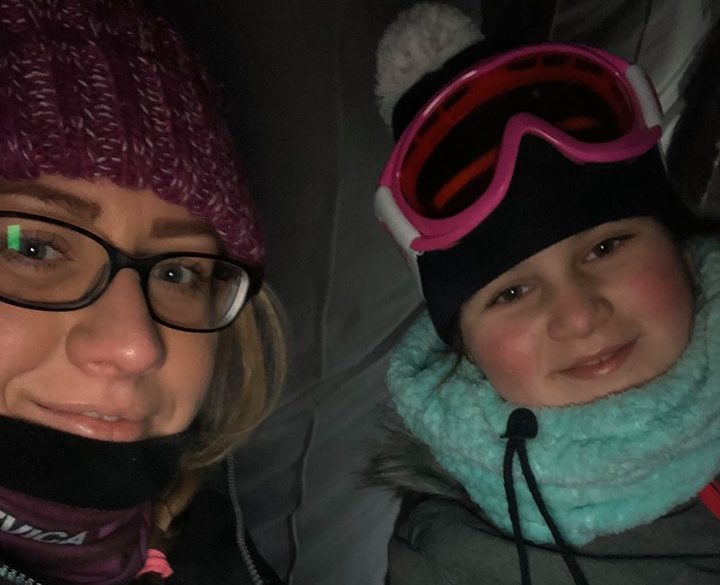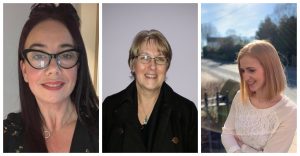
A mother from Salford has spoken out about feeling ‘incredibly guilty’ that her daughter doesn’t have a sibling due to infertility – especially as the Christmas holidays get underway.
Lynsey Boardman, 36, was diagnosed with Polycystic Ovary Syndrome (PCOS), a condition where follicles in the ovaries become cysts because they cannot develop into mature eggs, when she was only 16-years-old.
After years of hormone testing and procedures, Lynsey, from Ordsall, gave birth to her daughter Lilly in 2009 after receiving IVF treatment on the NHS.
Five years later, her and her partner wanted to try for another child and she was told that conceiving the second time around would be easier – but this wasn’t the case.
Lynsey sought out a private clinic and took part in an egg sharing scheme – where half of the eggs harvested during IVF are donated to women who can’t produce their own.
Through this, she had two successful pregnancies, but unfortunately both ended in miscarriage.
“The best way to explain infertility would be – it’s just a twisted knife in the gut. It feels like such an injustice, so unfair, but it’s also something that you have zero control over,” she said.
Lynsey explained that she feels ‘incredibly guilty’ that her daughter doesn’t have a sibling and described a feeling of ‘dread’ on the run up to Christmas.
“I’ve got quite a large family and there are no fertility problems. I do worry in the run up about Lilly’s friends and my other family members all getting together and having this big family Christmas.”
Freedom Fertility coach Mandy Worsley, who supports couples in the North West, explained how Christmas can put more pressure on those going through infertility.
“It’s traditionally a time where you get together with extended family you don’t often see. They might have children, or they might be pregnant, so it’s usually seen as a happy and positive time. So, when you’re having issues, you don’t want to bring people down. You’re wanting to keep your emotions in.”
Mandy added that Christmas can be a ‘milestone’ for people trying to conceive.
“Couples might think, ‘by next Christmas, I might have a baby,’ and then they have that vision and that hope. So, when that Christmas comes around and they don’t have that baby, it’s another blow.”
As a way of dealing with this, Lynsey and her partner keep busy and take Lilly on holiday.
“We do go away for Christmas, because I don’t want to be around these big family units and I feel as though it’s really important to make sure my daughter has the best Christmas she can have.”
They like to keep the holidays ‘as Christmassy as possible’ and spent last year in Lapland.
“We didn’t have a minute to ourselves; we literally didn’t stop for the whole time we were there. It’ll be the same again this year in Iceland; we’ll make sure that we have a super Christmas day,” Lynsey said.
Karen McEvoy, a reflexologist and therapist and at The Studio in Radcliffe, noted that spending time ‘not focusing on your fertility journey’ is sometimes needed.
“It’s important to take a bit of time out for yourself and to try something different, just to distract yourself. We encourage using the festive period for couple’s time and booking a holiday – and taking a break from putting on a brave face.”
But not everyone is able to get away for Christmas, and for some there’s no avoiding a family get-together.
Stacey Painter, who’s also a Freedom Fertility coach, recommends being prepared for awkward questions. She advises to ‘practice a phrase’ to come out with – whether that’s an honest answer about fertility struggles, or a vague response to brush off the question. Either way, it’s important to be prepared as to ‘not be taken aback.’
Stacey added: “If you feel that you are able to really be open with people, then do so. People aren’t mind-readers and don’t actually know if you’re trying for a baby or if you’re struggling to. Family should be people who love and care for you, and you might get a lot more support from them if you’re honest.”

Photo credit: Stacey Painter
Lynsey revealed that she found it difficult telling her family about her infertility – especially when she first conceived Lilly.
“It wasn’t something I was incredibly open about. I was very embarrassed about the problems that I was having. I didn’t want to tell people and it not work out, because I wasn’t sure if I was able to handle their pity. So, I just found it easier to keep it to myself at that time.”
She opened up to her mum when her first IVF treatment was ‘pretty much complete,’ and her family have been ‘incredibly supportive’ ever since.
“That’s really important to me – especially when you’re going through things like losses, because it’s quite easy just to go off the rails. Luckily, I’ve got my daughter to keep me grounded, my husband and a good support network around me.”















Recent Comments